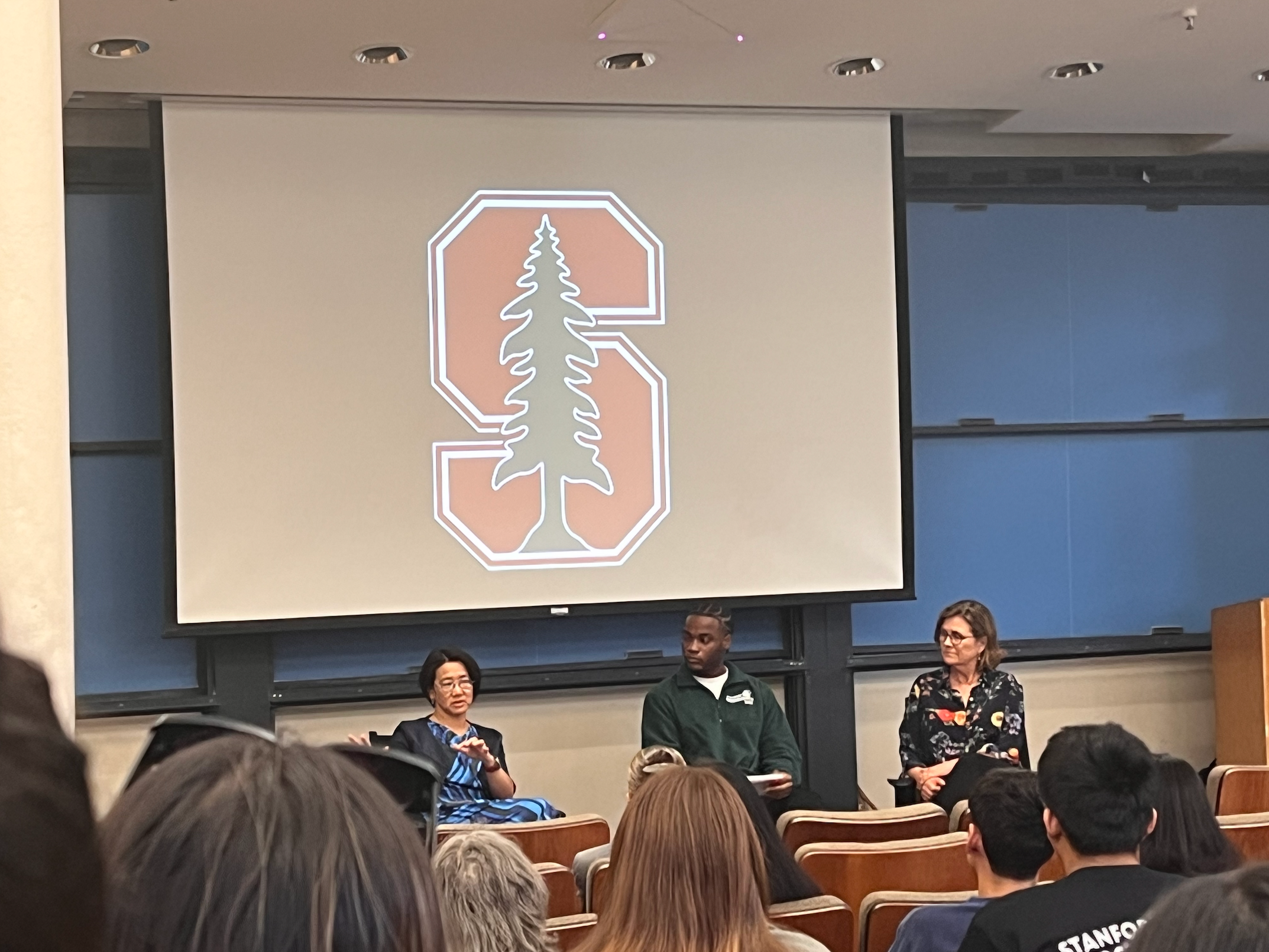Public health and politics are deeply intertwined, Stanford human biology alumni said during a panel discussion as part of the University’s Democracy Day programming on Tuesday.
The panel featured two distinguished human biology alumni — Sara Cody ’85, Santa Clara County’s public health officer, and Erica Pan ’92, California’s state epidemiologist.
With a mix of personal insights and expert analysis, Cody and Pan underscored how political decisions intimately shape public health issues. Changes in leadership and legislation may impact healthcare access for millions of Americans, they said.
Pan said her own path from Stanford to a career in public health was somewhat unplanned.
“I was a reluctant pre-med,” she said, recounting her decision to attend medical school and specialize in pediatrics before pursuing a career in public health.
Pan has drawn on her background in pediatric infectious diseases to navigate challenges like the COVID-19 pandemic. Reflecting on her experience in infectious disease emergencies, Pan said that although she sometimes misses patient care, her role in public health allows her to impact lives on a broader scale.
Cody spoke about her long tenure in the Bay Area. Her career trajectory, she said, is a study in “how to have an interesting career and not leave a one-mile radius,” adding that when she studied at Stanford, the concept of “social determinants of health” was barely discussed. Without formal public health training, Cody emphasized the importance of “learning while doing” as she transitioned into her public health role, where she has helped shape responses to critical health challenges facing the community.
Both speakers emphasized the importance of health policy in elections.
“A voter is someone who cares about healthcare access,” Pan said. She urged the audience to consider how their vote could affect issues like insurance coverage, reproductive rights and healthcare affordability.
Pan warned that Project 2025, which includes a set of conservative policy recommendations, calls for the restructuring of the Centers for Disease Control and Prevention (CDC) in a way that may negatively impact public health infrastructure. It would essentially dissolve the current structure and affect the CDC’s power to make policy decisions, Pan said.
“We need to look at the science,” she said, reminding voters to consider evidence-based solutions when evaluating policy proposals.
Cody agreed, noting that, “Public health touches on everything.” Reflecting on the complexities of U.S. health policy, Cody said that, while the federal system can be fragmented, it can also empower states to respond independently to specific health needs.
“Sometimes a decentralized approach can be a saving grace,” she said, explaining that the diversity of state policies can allow for more tailored health interventions.
Cody recalled the early days of the COVID-19 pandemic during the panel, and spoke about the decision to implement the Bay Area’s first shelter-in-place order on March 16, 2020. This was one of the earliest such measures in the United States.
“My conclusion was that there wasn’t any other tool available to save lives… except shelter-in-place,” Cody said.
While the decision was initially met with shock and resistance, she said, “it took about a month until the protests found their voice.” The experience underscored the sometimes difficult balance between public health and civil liberties, with Cody noting that when she made that difficult order, she had to “value life over liberty.”
Looking back on that time, Pan highlighted the challenges of reopening safely. While the public health community drew lessons from international cases in places like Italy, there was little guidance on a step-by-step reopening plan at the time. She emphasized the need for future planning to include not only crisis response but also clear pathways for recovery.
Both Cody and Pan underscored the vital role of public health in a democracy, reminding the audience of the far-reaching implications of voting on health policy. They called for policies that prioritize health equity, scientific integrity and inclusive healthcare access.
Pan’s concluding remarks encapsulated the panel’s central message: “As voters, we have a responsibility to think critically and demand policies that will lead to healthier, stronger communities.”
